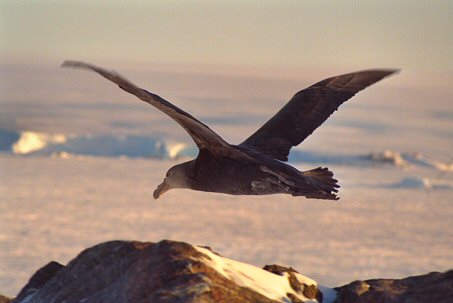 |
| Miguel Tamayo Zaldívar, Bishop of both Uruguay and Chile for 6 years. |
After a patient wait of nine years it sought permission to decide for itself whether to ordain women. The Provincial Synod decided that this would remain a Provincial decision and no diocese could act separately on the matter. Uruguay promptly decided to seek another jurisdiction. ACNS Press release, Thinking Anglicans Father Jake (in both the comments have more information about the Diocese).
This is significant because
- It is a reminder that the split in the Church is over sexuality. Homosexuality is (just) a concentrated focus of a wider debate.
- The Canons of the Southern Cone appear to make separation easier than it would be in most provinces. However, the English Act of Synod enabled the balkanisation of the CofE and GAFCON is carving up the Communion, so this would seem to be the way the Communion is going. A group which doesn't like present arrangements make new ones. Centralising the Communion in the Standing Committee may be whistling in the wind, the horse having bolted and the stable door left blowing in the wind.
- In an globalised world it is easy to align any one place with any other. Modern electronic and personal communications mean effective oversight can be a reality almost anywhere. The Bishop's personal responsibility for two different places reinforces the point.
An invitation to all
Therefore, as self-appointed Primate of the Province of the Antarctic, I hereby invite Uruguay to consider whether they would wish to be part of our jurisdiction. Uruguay has acceding status within the Antarctica Treaty System.
Indeed, I extend this invitation to any Province, Diocese, Parish or Person who would care to join us.
I have asked Archdeacon Penguin to draw up a framework to enable this to happen and this is his first draft (subject to revision through debate).
* * *
Any person who, or oganization which, wishes to join the Province of the Antarctic may do so irrespective of location.
- all weapons are to be left outside the door.
The Antarctic is sufficiently violent and dangerous in its weather without the additional help of the Christian Church.
In particular, successive Synods have held that blackmail (the threat of punitive consequences should a decision be taken or not taken) is regarded as a weapon and its use a kind of violence. Therefore any suggestion of resignations or departures or other action in the face of Synodical decision making will be taken at face value and accepted.
 |
| Rev Tony, Provincial Missioner to Giant Petrels |
We recognise the strength of passionately held views and, where appropriate, we set a high threshold for voting on contentious issues. However, once a decision is made, all members are enjoined to conform to it: it is true and certain, until a subsequent decision be made.
Note: we do not currently own any property although we are hoping to build a Cathedral one day on Deception Island. Any real and movable property we may one day acquire will be legally held by the Province and entrusted to the relevant local people or body for proper use and safekeeping.
- the Province of the Antarctic is a Synodical church.
That is, we are governed by councils of members at each level of the Church. The words of Bishops, clergy, teachers and prophets weigh heavily with the synods and no synod is complete unless they have contributed.
However every member of the Church is an equal member. Chicks are not the future of the Church and elders do not represent the Church as it used to be. They are the Church in the present. All members, Emperors and chinstraps, albatross and petrel, elephant and human are equal merely by virtue of membership.
We recognise that those who hold certain views of the nature of the priesthood and episcopacy may find this unacceptable. They are welcome to argue the point in any forum. The current position reflects the foundation of the Anglican Church in Antartica by the Protestant Mission Society (PMS).
- the Province is a Church without walls.
 |
| Assembled for worship during the recent summer Synod |
46 nations have some claim in the Antarctic, there are 17 species of penguin (depending how you count) 4 of which breed in the Antarctic, and many more birds and seals. All are welcome.
We acknowledge the reality of human evil but we do not put walls or bounds around members. As the current prayer book says: there is skua in all of us, within and without. We know that, while some may be tempted by barren paths or stand on false ice, all will come to the true feeding grounds and those who feed well will benefit most. God has given us such an abundance of riches that there is enough for all and more, though not enough for greed.
Antarctic spirituality is marked by (amongst other things) the fundamental conviction that we thrive together and we die alone. Therefore the gifts of the Spirit of hospitality and care, of generous sharing, respect and mutual building up are particularly valued.
Note: The theoretical possibility of skua joining the Church has been debated over the years and the birdist notions implicit in this prayer book phrase have been recognised. No decision has yet been reached.
- financial and formal arrangements for new members
There is no membership fee. However members are expected to contribute from their wealth whether financial, spiritual, artistic, technical or other. Donations made be made in international red herring or other convertible currency.
Membership is non-exclusive. You may simultaneously be a member of any other ecclesial body as you choose (respecting, of course, the rules of that body).
Please send your application through the membership page on the Provincial website.
Archdeacon Penguin
Advent, 2010
No comments:
Post a Comment